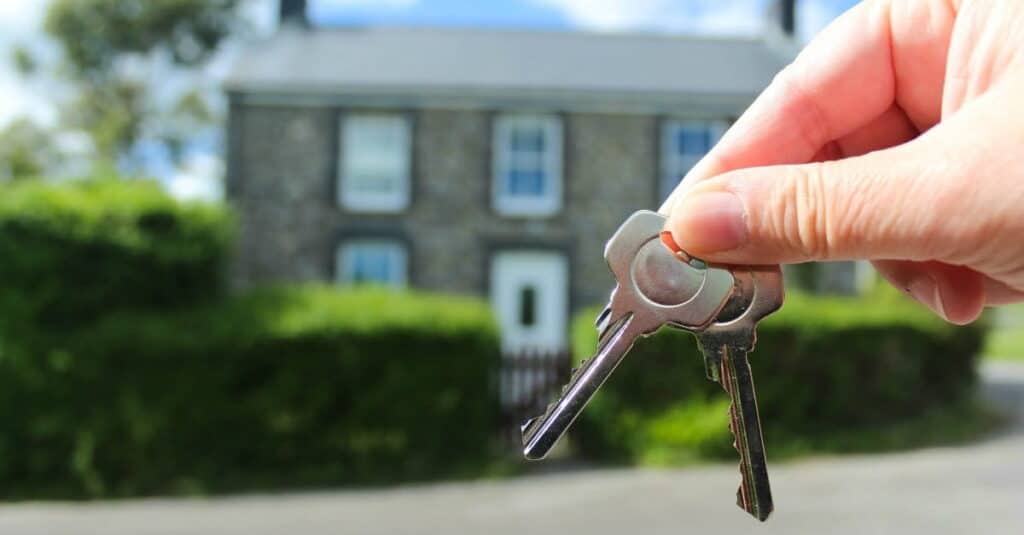
The average interest rate for a 30-year mortgage has dipped below 3%, prompting many Americans to consider buying a home while rates are low.
Some people might even contemplate withdrawing money from their retirement funds to finance a home purchase. Prior to the start of the pandemic earlier this year, about 13% of millennials (ages 24 to 39) used their retirement savings to fund the down payment on a home, Bankrate found. That may be on the rise, especially since Congress made it easier to make a withdrawal of up to $100,000 from your retirement accounts without paying the typical 10% penalty fee.
But is it a good idea to jump on these rates if you have to dip into your retirement savings to do so? Probably not. Major purchases like buying a house are about more than taking advantage of financial breaks, says Eric Roberge, a certified financial planner and founder of Boston-based wealth management firm Beyond Your Hammock.
“I never tell people to buy real estate because of the situation. It’s more about, were you planning to buy real estate to begin with? And if so, what were you doing to prepare?” says Roberge, who regularly advises those in their 30s and 40s.
Make sure you’re buying a home for the right reasons
“Don’t buy real estate because rates are down or because of the pandemic — buy real estate because it’s the best choice for you,” Roberge says.
Low interest rates don’t always add up to savings in your pocket. Over half of home offers tracked by Redfin in August were part of a bidding war, which can mean that the overall cost of the home is higher. While the interest rate may be low, if you’re paying a higher price overall to secure the home you want, it could end up costing you more in the long run.
If you’re considering buying a home in the current market, look at your savings levels before you browse listings, Roberge recommends. Do you have your cash reserves for emergencies set aside, plus money available for a down payment outside of your retirement savings?
“If not, it’s probably not a good idea to raid your 401(k) in order to make that down payment,” he says. That’s because when you take money out of your retirement accounts, it doesn’t “magically grow back,” Roberge says. “It’s money you’ve removed that you’ve worked so hard to save. By putting that money into real estate, it’s a coin flip on whether that’s going to be a good investment or not.”
When you’re buying a home to live in, it’s not an investment in the same sense as buying stocks, Roberge says. “It’s looked at as a utility. It’s a place to live…You’re building equity, which is a fantastic thing. But it’s not this secret solution that’s going to magically make your financial life better,” he says.
Plus, there are ongoing costs to owning real estate, such as property taxes and maintenance. Those costs can really add up, especially if you didn’t build them into your budget.
“An investment provides you a return on your cash,” Ryan Guina, founder and editor of the website Cash Money Life, told CNBC. “Unless you are renting out rooms or otherwise earning cash flow from your home, it is a liability.”
“That doesn’t mean you can’t make money when you sell your home,” Guina added. “But even paper gains can be misleading, as you need to account for the cost of the transaction, the carrying costs leading up to the sale and other factors.”
Retirement accounts can be tricky to use
First and foremost, tapping into your retirement accounts today means you may have less when you do retire, especially when you consider how much compound interest adds up over time. “Most people have a tough time saving enough money for retirement to begin with,” Roberge says. Raiding your 401(k) or other retirement plans for a down payment can make it even more challenging.
There are also a lot of details to consider before tapping into your retirement savings. Rules such as penalties for making early withdrawals and time limits on 401(k) loans are designed to make it difficult and prompt you to think twice before accessing that money early.
If you are planning to tap into your 401(k), you can do so by either making a withdrawal or taking a loan if your employer allows it. Under the CARES Act that Congress passed in March, Americans can make withdrawals from retirement accounts without incurring the typical 10% early withdrawal penalty, but you’ll need to pay back the money within three years to avoid paying income taxes.
If you take a loan from your 401(k), it is not taxed, and loan repayments can be deferred until 2021, after which you’ll have five years to repay the loan. But if you’re either let go or choose to leave your job during the repayment period, that money is typically due back immediately.
“I’ve seen it happen before where people take out their 401(k) loan and then surprisingly they get let go and they owe it back, but they don’t have the cash available because they put it into the home,” Roberge says. In that case, you’re stuck paying a lot of unexpected penalties and taxes.
Buying a home right now may seem like the perfect opportunity, but it can come with a lot of risks if you’re not properly prepared (and a few may remain even if you do plan ahead).
“Don’t buy the house thinking everything’s going to turn out OK,” Roberge says. “Hold off, even if you miss the house of your dreams. Hold off on that until you know that you’re more stable. Then you can move in feeling confident.”
